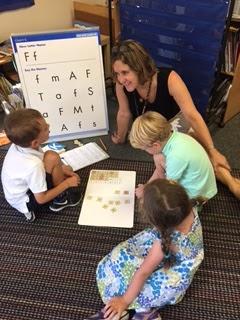Establishing Routines-September 2017
One of the most important practices for EVERYONE at the beginning of each new school year is to establish routines for a smooth transition and successful year.
According to the American Heritage Dictionary of the English Language (2000) Routines are prescribed, detailed courses of action to be followed regularly; a standard procedure; a set of customary and often mechanically performed procedures or activities.
Establishing routines in the classroom reflect best practice and help ALL students better able to focus on their learning. When time is taken to establish and practice routines, more time can be spent on the teaching and the learning.
Good Routines:
- Begin and end with a clear signal (often including non-verbal cues)
- Are consistent
- Follow the same sequence every time they are used
- Appropriately scaffold responsibility to the students
All around campus I am continuously reminded of the importance of setting routines. As someone who is in and out of classrooms all day long, I have the great pleasure to see these routines consistently established, reminded and reinforced across all grades...and across all curricular areas....
Effective instruction is direct and explicit, this is no different when we teach basic routines.
Important steps our teachers include when establishing routines:
- Introduce (be explicit and direct)
- Model (I do)
- Guided Practice (We do)
- Independent Practice (You do)
- Reminders/Feedback
Some Routines Around TCS
Setting the routine for how to shop for books.
Independent Practice choosing Just Right Books.
Ok, perhaps not quite a routine -
but surely modeling how to be a
good friend and help each other
-how could I resist? -
Teacher modeling...
How to draw a self-portrait
Guided Practice - Small group work
Setting up Readers’ Notebooks
Snack Break - read aloud
Teacher modeling: How to start a reading letter.
Literacy Stations
“...and fifth graders show fourth graders how it’s done....”
More small group work....
Independent Reading


